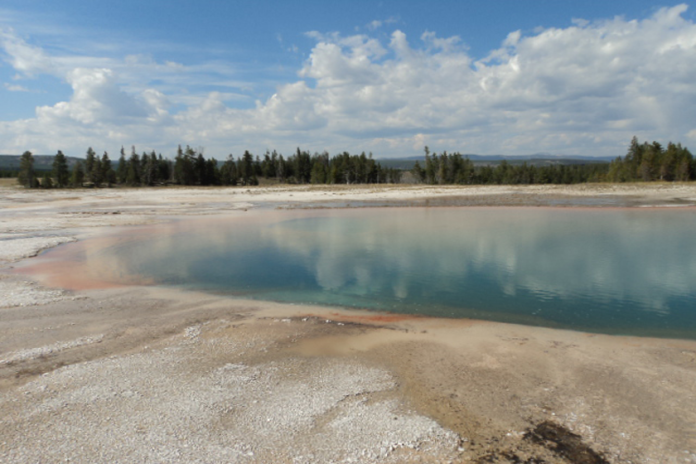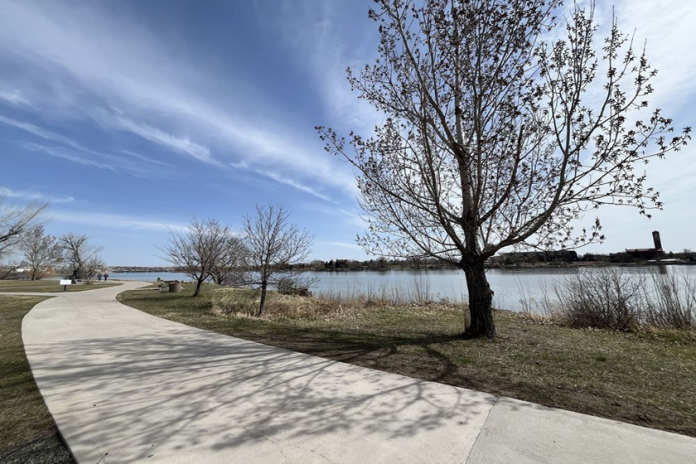The Social Security Administration (SSA) initially planned to stop issuing paper checks for benefit payments starting September 30, 2025, as part of a broader government initiative to modernize payment systems, reduce costs, and enhance security.
This decision was driven by an executive order signed by President Trump in March 2025, aiming to transition all federal payments to electronic methods like direct deposit or Direct Express prepaid debit cards.
Paper checks, which cost about 50 cents each to issue compared to 15 cents for electronic transfers, are also 16 times more likely to be lost or stolen, increasing fraud risks. Fewer than 1% of the SSA’s approximately 70 million beneficiaries—around 456,000 to 521,644 people—still receive paper checks.
Following push-back, the SSA reversed this decision in late July 2025, confirming it will continue issuing paper checks for beneficiaries who have no other means to receive payments, such as those without bank accounts or access to electronic payment systems.
The agency is still encouraging a shift to electronic payments, citing faster processing, enhanced security, and creditor protections under federal law (e.g., Section 207 of the Social Security Act and the Consumer Credit Protection Act), which safeguard two months of benefits in bank accounts or Direct Express cards but not cash from paper checks.
Beneficiaries currently receiving paper checks are being notified to switch to direct deposit or Direct Express cards.
Those who cannot transition due to specific circumstances—such as mental impairment, living in remote areas without digital infrastructure, or being 90 or older—can request a waiver from the Treasury Department’s Electronic Payment Solution Center at 1-855-290-1545 or by submitting a form. Without a waiver, payments may be disrupted after September 30, 2025.
To ensure uninterrupted benefits, affected recipients should act promptly to set up electronic payments through their bank, a my Social Security account online, or by contacting the SSA at 1-800-772-1213.
Waiver Process Details
The waiver process for continuing to receive Social Security Administration (SSA) paper checks after the planned transition to electronic payments (effective September 30, 2025) is designed for beneficiaries who cannot use direct deposit or Direct Express prepaid debit cards due to specific hardships.
Here are the details based on available information:
Eligibility for a Waiver
Waivers are granted for limited circumstances, such as:
-
- Mental or physical impairments that prevent managing electronic payments.
- Living in remote areas without access to banking or digital infrastructure.
- Age 90 or older as of a specified date (often tied to policy implementation).
- Other exceptional cases, evaluated on a case-by-case basis.
How to Request a Waiver
-
- Contact the Treasury Department’s Electronic Payment Solution Center
- Call 1-855-290-1545 to speak with a representative who can assess eligibility and guide you through the process.
- Be prepared to explain why electronic payments (direct deposit or Direct Express) are not feasible.
Submit a Waiver Form
-
- Obtain the waiver request form (likely the FS Form 1201W or a similar form) from the Treasury Department or SSA.
- The form may be available online at www.fiscal.treasury.gov or through local SSA offices.
- Complete the form with details about your situation, such as lack of banking access, medical conditions, or age-related issues.
- Submit the form as instructed, either by mail or through an SSA office. Specific mailing addresses or submission methods depend on your location and are provided with the form or by the Solution Center.
Required Information
You may need to provide:
-
- Personal identification (e.g., Social Security number, name, address).
- Documentation or explanation of the hardship (e.g., proof of residence in a remote area, medical records for impairments, or age verification).
- Contact information for follow-up.
Processing and Approval
-
- The Treasury Department reviews waiver requests on a case-by-case basis.
- Processing times vary, but acting promptly is critical to avoid payment disruptions after September 30, 2025.
- If approved, you’ll continue receiving paper checks. If denied, you’ll be directed to set up electronic payments, and the SSA or Treasury may provide assistance.
Next Steps if You Don’t Qualify
-
- If a waiver is not granted, you must enroll in direct deposit (via a bank account) or a Direct Express card.
- Contact the SSA at 1-800-772-1213 or visit www.ssa.gov to set up electronic payments.
- Local SSA offices or the Treasury’s Go Direct program can assist with Direct Express enrollment.
Important Notes
-
- The SSA’s reversal in July 2025 ensures paper checks continue for those who cannot transition, but a waiver is still required to formalize the exemption.
- Beneficiaries are urged to act well before the September 30, 2025, deadline to avoid delays.
- For additional help, visit a local SSA office or check www.godirect.gov for resources.
If you need specific forms or further assistance, contact the Electronic Payment Solution Center or your local SSA office, as processes may vary slightly by region.






Social Security Administration to stop issuing paper checks
The Social Security Administration (SSA) initially planned to stop issuing paper checks for benefit payments starting September 30, 2025, as part of a broader government initiative to modernize payment systems, reduce costs, and enhance security.
This decision was driven by an executive order signed by President Trump in March 2025, aiming to transition all federal payments to electronic methods like direct deposit or Direct Express prepaid debit cards.
Paper checks, which cost about 50 cents each to issue compared to 15 cents for electronic transfers, are also 16 times more likely to be lost or stolen, increasing fraud risks. Fewer than 1% of the SSA’s approximately 70 million beneficiaries—around 456,000 to 521,644 people—still receive paper checks.
Following push-back, the SSA reversed this decision in late July 2025, confirming it will continue issuing paper checks for beneficiaries who have no other means to receive payments, such as those without bank accounts or access to electronic payment systems.
The agency is still encouraging a shift to electronic payments, citing faster processing, enhanced security, and creditor protections under federal law (e.g., Section 207 of the Social Security Act and the Consumer Credit Protection Act), which safeguard two months of benefits in bank accounts or Direct Express cards but not cash from paper checks.
Beneficiaries currently receiving paper checks are being notified to switch to direct deposit or Direct Express cards.
Those who cannot transition due to specific circumstances—such as mental impairment, living in remote areas without digital infrastructure, or being 90 or older—can request a waiver from the Treasury Department’s Electronic Payment Solution Center at 1-855-290-1545 or by submitting a form. Without a waiver, payments may be disrupted after September 30, 2025.
To ensure uninterrupted benefits, affected recipients should act promptly to set up electronic payments through their bank, a my Social Security account online, or by contacting the SSA at 1-800-772-1213.
Waiver Process Details
The waiver process for continuing to receive Social Security Administration (SSA) paper checks after the planned transition to electronic payments (effective September 30, 2025) is designed for beneficiaries who cannot use direct deposit or Direct Express prepaid debit cards due to specific hardships.
Here are the details based on available information:
Eligibility for a Waiver
Waivers are granted for limited circumstances, such as:
How to Request a Waiver
Submit a Waiver Form
Required Information
You may need to provide:
Processing and Approval
Next Steps if You Don’t Qualify
Important Notes
If you need specific forms or further assistance, contact the Electronic Payment Solution Center or your local SSA office, as processes may vary slightly by region.